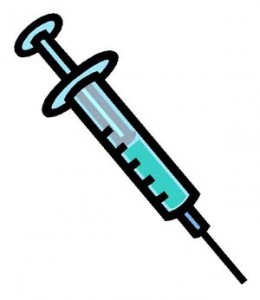Back when I was in seventh grade, my English teacher at the time was a mother of two girls, one in which was autistic. I remember her telling us that she could have been on the Ellen show, but as a 7th grade I did not even watch Ellen or know what they even talked about on that show. As I got older, my friend absolutely loved Ellen and ended up sharing with me that our mutual 7th grade teacher almost was on the show because she truly believed that her daughter’s autism was caused by a vaccination, but she did not end up attending the show for reasons unknown to us. I am not a doctor, but I have gotten my fair share of vaccines, as most if not all of us have, and I always thought that was a really intriguing question because she was the first person to raise that question in my mind. Could vaccines really be a cause of autism in children?
Since that time, thousands of studies have been conducted in order to disprove this stigma that vaccines can cause autism. I can imagine why the medical force was so quick to try to disprove this because it definitely was causing an uproar in the world and a distrust in the system. When I first started doing research for this topic, I started to think maybe this was a time when doctors got it wrong so many times before, like all those examples Andrew showed up in class. I thought wow what if this certain ingredient in this vaccine was actually giving kids autism, but doctors did not make the connect because they were choosing experience over facts similarly like they did when it came to blood letting or thalidomide. The null hypothesis would be that vaccines do not cause autism while the alternative hypothesis would be that vaccines do indeed cause autism. It was not vaccinations themselves as a whole that people were raising doubts about, it was more a certain ingredient within the shots which was thimerosal. The Centers for Disease Control and Prevention ran a substantial amount of tests on their own to get to the bottom of this controversy. The first study was a test of very young children whom they again revisited 7-10 years old and tested to see if exposure to thimerosal in the vaccine as infants caused any outcomes such as a child developing autism. This study proved there to be no link between vaccinations and autism. They ran eight other studies accounting for as many confounding third variables as I could think of. For example, they did not focus just on american children, they ran the same experiment with children, infants, babies still in the womb, long-term studies of children as they grew up, and even children in other countries. One of the most convincing studies was also done by the Centers for Disease Control and Prevention in which Denmark and Sweden actually removed the ingredient thimerosal, which was the ingredient said to be causing the autism, from their shots completely. If this ingredient were to be causing autism then it would be logical to see an obvious decline in the amount of children developing autism once the ingredient was removed, but their studies found the exact opposite. Statistically, when looking at the number of people and studies involved in these nine separate studies, it is extremely unlikely that these results were due merely to chance alone. These studies seem very convincing and have strong evidence to deduce that there is nothing going on when it comes to a link between autism and thimerosal in vaccines, but then again the tobacco industries had really convincing evidence that smoking did not give you lung cancer, and look where we are now. The evidence provided by these studies shows as of now vaccinations are in no way causing autism in children, but I think it is something to keep an eye on as time goes by.

image Girl Getting a Flu Shot Clipart
I am sure there are some cases in which mishaps have occurred or someone’s body’s and or minds rejected the vaccination and caused negative side affects or even could have caused some form of autism, but overall I think it is safe to say that the null hypothesis actually rings true when it comes to this topic. Although this particular correlation was not actually causal, it is a good idea to not get vaccinations right away until you know in detail what exactly they are for, what is in them, and their success rate. Better safe than sorry!


















